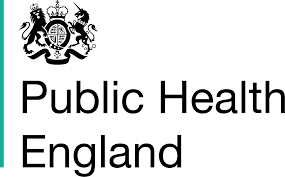By Charlotte Webster-
A new coronavirus antibody test has been found to be 100% accurate, public health leaders have confirmed.
Public Health England (PHE) said the new blood tests have independently evaluated the new blood test developed by a Swiss pharmaceutical company.
The examination found that Roche’s serology test was “highly specific” and had an accuracy of 100%.
The test helps determine whether a patient has had COVID-19 and whether they have developed antibodies against it.
Professor John Newton, national co-ordinator of the UK Coronavirus Testing Programme said the antibodies could help indicate whether a person has gained immunity against the virus.
“This is a very positive development because such a highly specific antibody test is a very reliable marker of past infection.This in turn may indicate some immunity to future infection although the extent to which the presence of antibodies indicates immunity remains unclear.”
How Antibodies Work
Antibodies (Immunoglobulins) (Igs) are proteins secreted by B cells or plasma cells (clone of B cell) in response to an antigen and are capable of binding to that antigen
An antibody test is supposed to be able to establish whether a person has had coronavirus before and has since recovered. The test is carried out by a device that pricks your finger for blood, works this out by testing your blood for coronavirus antibodies to see if they have already beaten the virus and gained some immunity to it.
Once an antibody binds to an antigen, it inactivates the antigen in several ways.One of those ways is through complement fixation in which the antibody binds to the antigen and causes lysis, chemotaxis to attract other leukocytes and opsonization. Leukocytes are a colourless cell which circulates in the blood and body fluids and is involved in counteracting foreign substances and disease; a white (blood) cell. There are several types, all amoeboid cells with a nucleus, including lymphocytes, granulocytes, and monocytes.
Through Neutralization, the antibody binds to a site on the bacteria or virus that releases toxins (exotoxins) to block the harmful effects of the toxin.
Agglutination – antibody will bind to the cell and cause clumping (occurs in mismatched blood) so they are easily captured by phagocytes. Phagocytes are a type of cell within the body capable of engulfing and absorbing bacteria and other small cells and particles.
Immunity
There are three types of immunity. Naturally acquired active immunity results after a person contracts a disease or illness and recovers, leaving behind antibodies and memory cells
Artificially acquired active immunity – results after a primary immune response is triggered from a vaccine leaving behind antibodies and memory cells for the second attack
Passive Immunity occurs when immune cells are acquired somewhere other than one’s own body.
The NHS could start testing hundreds of thousands of people per day for Covid-19 within weeks, NHS England’s medical director has said.
A spokeswoman for the Department of Health and Social Care (DHSC) said: “Antibody testing is an important part of our strategy to counter the spread of COVID-19 and to help us understand who has had the disease.
“In addition to the recent huge expansion of the UK’s swab-based coronavirus testing capacity, we are exploring the use of antibody testing across the NHS and ultimately the wider public
We are delighted that devices are progressing through validation, and are actively working on our plans for rolling out antibody testing and will make announcements in due course.”
“So for an economic point of view, from a social point of view, it really could be a game-changer.”




